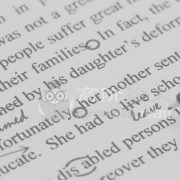personal statement 代写:战争与权力
personal statement 代写:战争与权力
他对战争没有什么限制,只有在满足了所有这些限制之后,战争才能被认为是公正的。在宗教上,无正当理由杀人也是非法的。圣托马斯·阿奎那提出的关于战争的三个主要限制,即使在现代战争中也值得考虑。然而,一些学者认为,这些限制不是定制的,可以应用,他们将回答所有的情况。这些都是对伦理道德推理的限制。战争的第一个限制是,必须有“主权者的权力,他的命令使战争得以进行”。因为宣战不是个人的事,因为他可以向他的上级法庭寻求权利的补偿”(阿奎那,2017,第215页)。在他看来,召集人民宣战不是个人的责任。这是当局的责任,为人民和国家的共同利益而工作。
personal statement 代写:战争与权力
圣托马斯·阿奎那说,当局有权惩罚那些在该国造成内乱的人。他们惩罚作恶的。同样,他们也有责任保护自己不受外界干扰或敌人的侵害。根据正义战争的概念,捍卫共同财富是正当的(拉姆齐,2002,第143页)。战争背后的正义事业,是防御敌人,还是惩罚侵略者。惩罚可以被认为是教育和改革侵略者的正当行为(Finnis, 1998,第285页)。国家、政府或王子被认为是做出战争决定的高级权威。他们有责任把无辜和贫穷的人从作恶的人手中拯救出来。权威与地位和权力紧密相连。普通人尊重他们,因为他们有责任保护他人(图克,1965,第178页)。
personal statement 代写:战争与权力
He has offered few limitations over the war, and only after satisfying all these limitations, a war could be considered as just. It is also religiously unlawful to kill a man without justified reason. The three main limitations proposed by St. Thomas Aquinas on war are important to consider even for the modern warfare. However, some of the scholars stated that these limitations are not custom made which could be applied and they will answer all the circumstances. These limitations are made for the ethical and moral reasoning. The first limitation for the war is that there must be a “the authority of the sovereign by whose command the war is to be waged. For it is not the business of a private individual to declare war, because he can seek for redress of his rights from the tribunal of his superior” (Aquinas, 2017, p. 215). According to him, it is not the duty of the private individual to call together the people and declare a war. It is the duty of the authority, who works for the common good of the people and their country.
personal statement 代写:战争与权力
St. Thomas Aquinas stated that the authority has the right to punish those who cause internal disturbance in the country. They punish the evil doers; in same way, it is their duty to defend themselves against external disturbance or enemies as well. As per the concept of just war, it is justified to defend the common wealth (Ramsey, 2002, p. 143). The just cause behind the war is to defend against the enemies or to punish the aggressors. Punishment can be considered as the justified act of educating and reforming the aggressors (Finnis, 1998, p. 285). State, government or prince is considered as the senior authority to take the decision of war. It is their duty to save the innocent and poor from the evil doers. The authority is bound with the status and power. Common people honour them as they are liable to protect others (Tooke, 1965, p. 178).








